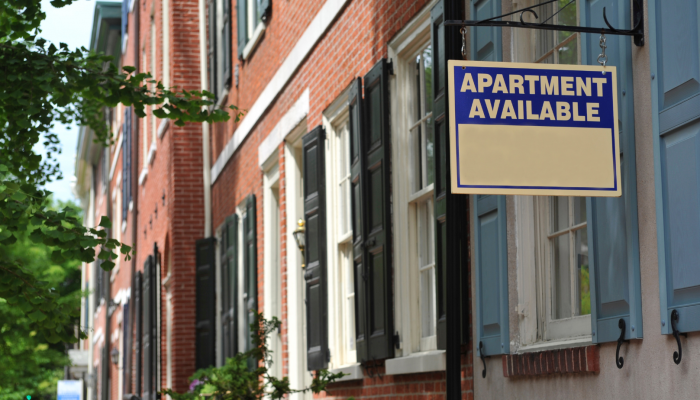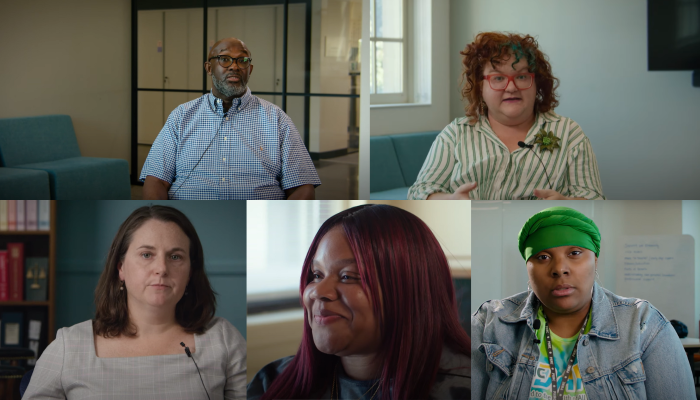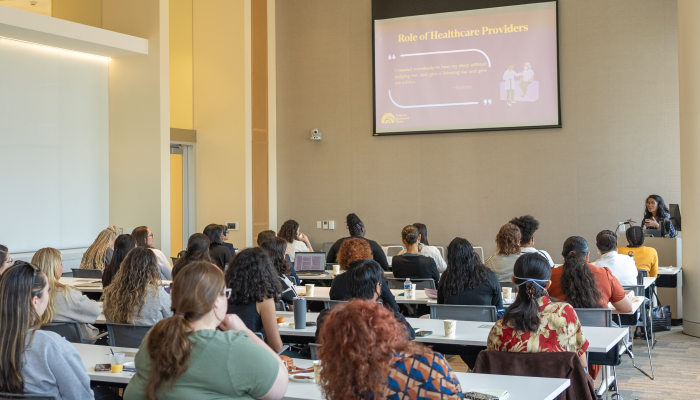by Liz Pride, Office of Domestic Violence Strategies
Safe housing is critical for survivors of domestic violence. In movies and television, stories about survivors often show them escaping an abusive home to start fresh under a new name. In reality, leaving an abusive relationship is more of a process than one event. Research has shown the period around leaving is one of the most dangerous times for people experiencing domestic violence. And many people feel safest in places where they have easy access to their communities, friends, and family. There is no one-size-fits-all approach to housing for survivors. But barriers to establishing safe housing can impact survivors and place them at higher risk.
Few options for affordable housing
Philadelphia, like many cities, has an increasingly competitive market for rental properties. Subsidized housing can be transformative for survivors, but programs for subsidized housing are limited and depend on available units and willing landlords.
“In addition to just finding affordable rental units,” said Ramona Peralta, Manager of Family Wellness at the Congreso de Latinos Unidos Latina Domestic Violence Program, “survivors are having difficulty finding landlords who are willing to collaborate with them and provide the appropriate documentation to be eligible for subsidies.”
Survivors of intimate partner violence are not only competing in a difficult rental market, but, because of the abusive partner’s behavior, there may be section of the city that are not safe for them. Limited choice of location also impacts survivors. “Safety is often a key component of a housing search when we work with survivors, but as we’re seeing housing and rental costs increase, we’re very limited in options when it comes to safety planning around neighborhoods,” Peralta added.
When moving is legally complicated
While some people can look outside Philadelphia for housing options, this can be difficult for people with children. State law says that people moving with a child must follow specific steps to make sure the child’s other parent or guardian has appropriate access to them. These steps include getting either the other parent or guardian’s permission or the permission of the court to move. You can imagine how this law can be complicated for people fleeing domestic violence, so survivors should reach out to an attorney for more information about moving with children.
Philadelphia’s supports for survivors
Amidst these difficulties, there are local efforts to support survivors’ access to safe housing. The City of Philadelphia received a special allocation of Emergency Housing Vouchers (EHV) through the American Rescue Plan, 20% of which were set aside for survivors of domestic violence, sexual assault, and trafficking. Finding affordable options to lease takes time, but many have found success already. Even more people will be able to find appropriate units to use their vouchers once more landlords get certified to receive housing choice vouchers.
Philadelphia also has housing protections specifically for survivors of intimate partner violence and sexual violence. Tiffany McAnany, Staff Attorney in the Housing Unit of Community Legal Services says, “The lack of stable housing compounds a traumatic time in a survivor’s life and further serves as a barrier for those seeking to leave an abusive situation. Providing survivors with information on their rights and protections under the Philadelphia Unfair Rental Practices Ordinance or Violence Against Women Act (VAWA) for certain subsidized housing tenants, serves to empower.”
| Philadelphia Unfair Rental Practices Ordinance Protections for Survivors: |
| Landlords cannot evict someone for being a survivor of domestic violence or sexual assault |
| Survivors may break a lease without penalty and get back their security deposit |
| Landlords cannot evict or punish tenants for calling the police about domestic violence or sexual assault |
| Survivors can ask their landlord to split a lease and evict the abusive partner |
While these protections may feel daunting to navigate alone, McAnany notes that, “CLS is available to provide advice and/or information to survivors facing domestic violence-related housing matters.”
Everyone should feel safe in their home. Learn about resources for getting and giving help below:
If you or someone you know is experiencing domestic violence:
Get help for yourself or help someone else experiencing domestic violence or sexual assault.
- Know your housing rights. Philadelphia ordinances to protect domestic violence survivors from discrimination in eviction and allow them to break a lease without penalty. Contact Community Legal Services for more information.
- Survivors also have utilities protections and can access utilities assistance.
- Register for a webinar on Tuesday October 18 at noon to learn about housing and utilities protections for survivors in Philadelphia.
- Learn about rental assistance programs and mortgage assistance programs in Philadelphia.
- Questions about moving with children? Reach out to the Women Against Abuse Legal Center, Philadelphia Legal Assistance, or go to the Philadelphia Family Court Help Center Monday through Friday from 12 – 3p.m. on the 11th floor of Family Court.
If you are a landlord or property owner:
- Learn about Philadelphia’s Unfair Rental Practices ordinance and offer to connect survivor tenants with resources if you think they are in need of them.
- Domestic violence survivors often experience economic abuse. Consider demonstrating flexibility with renters who have experienced past eviction or bad credit, especially if the individual can show they’re working toward stability.
- Become a housing choice voucher landlord through the Philadelphia Housing Authority. Housing voucher or rental subsidy programs provide consistent rental payment and participation often offers landlords other benefits or incentives.
- Register to attend a virtual PHA Owner Certification Course Tuesdays at 10a.m. or Wednesdays at 5p.m.
If you want to support housing access for survivors:
- Check out this post on 5 ways to help people experiencing homelessness in Philadelphia.
- Get familiar with Roadmap to Homes, Philadelphia’s 5 year strategic plan for the homeless assistance system.
- Share resources with your communities about homelessness, food access, and rights for survivors of domestic violence.




